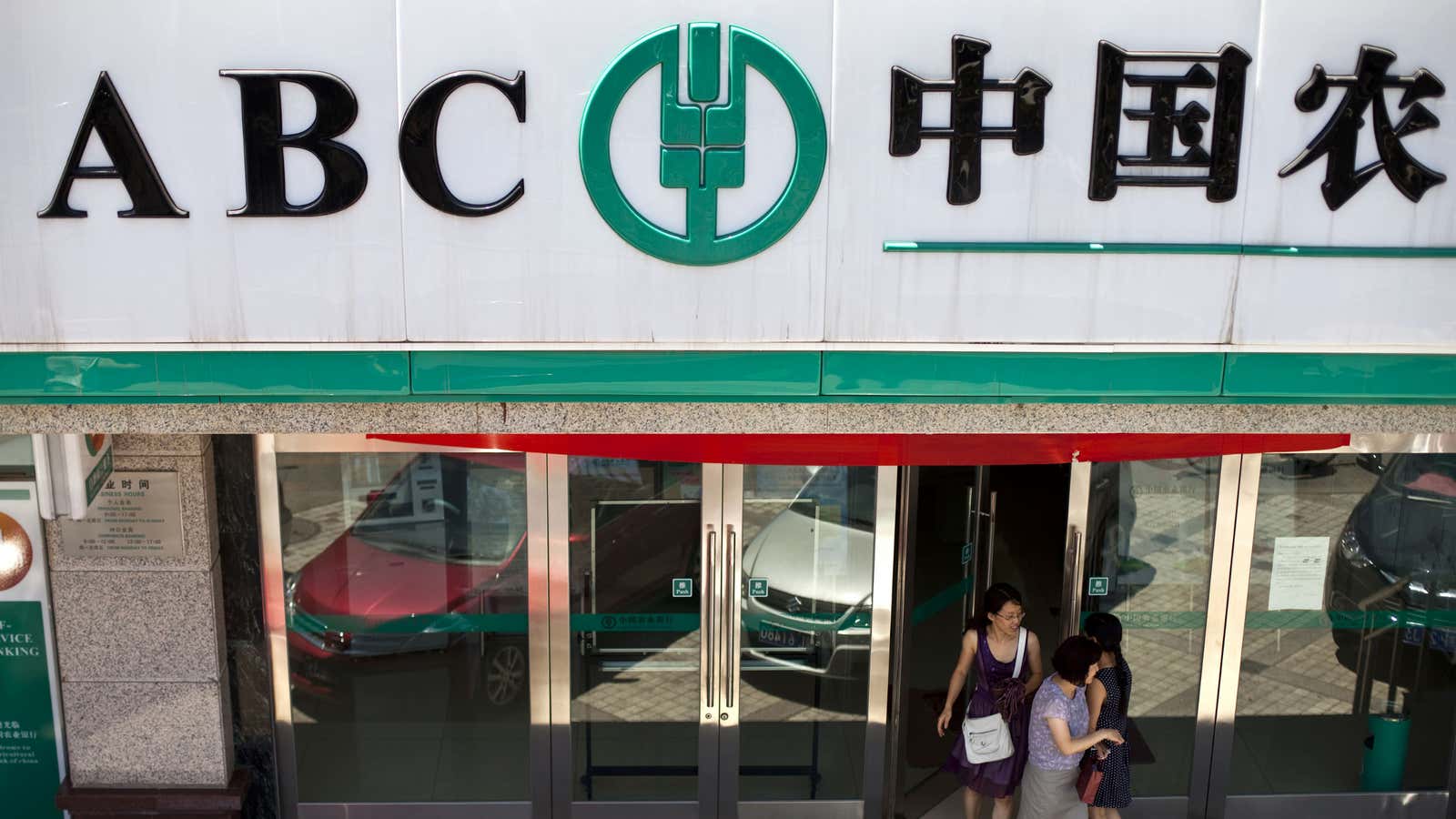China’s just-installed president, Xi Jinping, has made fighting official corruption one of his biggest priorities.
He has a big job on his hands.
According to a report (in Chinese) in Caixin, one of China’s most respected business magazines, Yang Kun, a former deputy head of state-owned Agricultural Bank of China, may soon be prosecuted for allegedly taking bribes from a Beijing property company for the development of a posh, sprawling shopping center in Beijing called Solana.
Yang, who was arrested last May, is the most senior banking executive to be targeted by the Chinese Communist Party’s disciplinary committee since 2006. Along with Bank of China, China Construction Bank, and Industrial and Commercial Bank of China, ABC is among what are called China’s “Big Four” banks.
And his case—if the allegations reported by Caixin turn out to be true—illustrates the bribery and collusion that exists at the very top of Chinese industry and government. (A senior executive at a state-owned bank such as ABC would be considered a government official.)
According to the Chinese-language report, Yang accepted “tens of millions of yuan” from Beijing developer Blue Harbor in return for extending about 3 billion yuan of loans to the company since he became a deputy head of ABC in 2004. Without naming sources, Caixin added ABC executives were worried that some of the cash the bank lent to Blue Harbor might be “missing.” The magazine also claimed Blue Harbor’s owner, Wang Yaohui, “owes big gambling debts.”
Yang resigned from ABC last July due to what the bank said were “personal circumstances.” Quartz could not reach him for comment.
It is not unusual for Chinese businessmen to offer bribes for loans—and China’s banking system has long had associations with corruption and mismanagement. In August 2011, a former head of real estate finance at Chinese banking giant Industrial and Commercial Bank of China’s Hong Kong branch was convicted of bribery charges for accepting cash, bottles of wine and a designer watch from a Chinese property developer. In 2006, three mid-ranking managers of Bank of China somehow managed to embezzle $485 million from a single branch in Kaiping, a small town in the Pearl River Delta near Hong Kong. In 2005, in an unrelated case, former Bank of China vice chairman Liu Jinbao received a suspended death sentence, also for embezzlement.
Since the middle of 2012, the Beijing government has been cracking down on suspected graft in its financial sector. Last July, Tao Liming, the boss of Postal Savings Bank of China, the country’s sixth-largest bank, was detained for questioning in a corruption case (he was officially arrested for corruption in January 2013). And in August, Zhou Caikang, a former head of a regional branch of China’s central bank, came under investigation (paywall) for allegedly accepting bribes.
As part of this new anti-corruption drive, China’s government last November banned bank executives from “using public funds” to buy or renovate houses. It is, of course, somewhat astonishing such purchases were not prohibited before.
